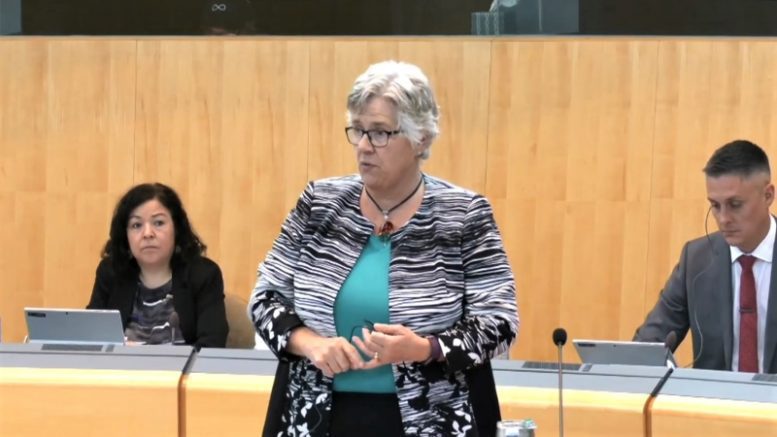About 90 new mothers are expected to deliver a child between Dec. 10 and Feb. 21 but won’t be able to do it in Yellowknife.
Although this reality is troubling to some, many Northern residents, especially from smaller, remote communities are familiar with the lack of health services taking them to other parts of the territory or country for assistance.
This comes after an announcement on Friday, saying expecting mothers will need to deliver their baby in Edmonton following a lack of shift coverage in the obstetrics ward at Stanton hospital.
Public health servants are tired, overworked and experiencing burnout, says Julie Green, health minister.
With 46 vacant shifts in the ward, she says she had to move services elsewhere.
“The volume was simply too great for the number of staff that we had and so we have arranged this alternative to go to Edmonton,” she said.
She recognizes the situation is not ideal for families but necessary in order to have a safe delivery.
Juggling staff time-off requests, competitive wages and the high cost of living are just some of the barriers holding back health care workers in the NWT.
“We are giving them the time off that they are requesting, and this is the end result of it. We don’t have enough nurses to keep the obstetrics unit open.”
Green says, “we’re in a very challenging situation to bring on full-time staff.”
Medical supports will be made available to families to help them with travel costs, including a $50 hotel voucher a night and a $36 food allowance.
According to the minister, the obstetrics unit is calling each patient to determine the needs of each family, on a case-by-case basis.
NWT nurses ‘unhappy’
More nurses are desperately needed in the NWT.
Earlier in the year, the department of health and social service began doing exit interviews with its employees to find out why they were leaving the territory.
Work environment, heavy workload and wages are just some of the possible reasons.
In addition, another survey is being circulated by The Registered Nurses Association of the Northwest Territories and Nunavut to gauge the gaps in the NWT healthcare system.
“I have heard people say that the work environment is the problem,” she said.
Green is unclear if the reason for dissatisfied nurses is the lack of nurses and the ensuing burnout to follow or the “scratchy relationships between the union and management.”





